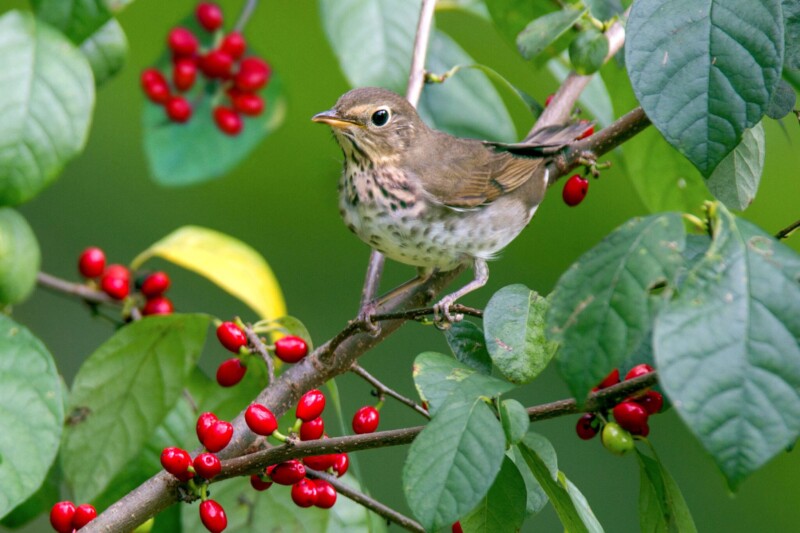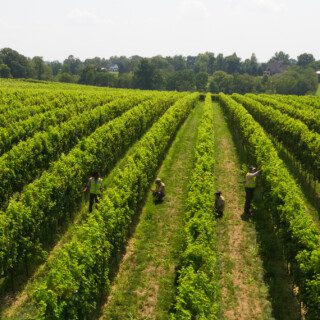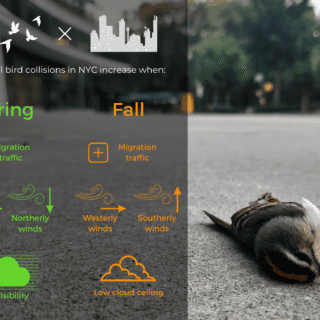
New Paper on the Importance of Berries to Migrating Songbirds
As the summer breeding season ends and fall approaches, migratory songbirds switch from eating mostly insects to eating mostly berries. It is thought this major change in diet may be because the high energy and antioxidant content of berries helps birds fatten up and maintain the physiological condition needed for long-distance flight. However, these hypothesized benefits of a fruit-based diet during migration have not been well-tested in the wild. A new study published by Great Hollow in the journal Oecologia confirms that the more long-distance migratory birds shift to a fruit-based diet, the better condition they are in. Led by Great Hollow’s post-doctoral research fellow, Dr. Wales Carter, and executive director, Dr. Chad Seewagen, the study analyzed carbon and nitrogen isotopes in different tissues (feathers, red blood cells, and blood plasma) sampled from birds during fall migration to determine the timeline and degree of the birds’ shifts from insect- to fruit-based diets, and then measured several indicators of the birds’ physiological condition. They also analyzed fecal samples from the birds to see what they were eating and determine the antioxidant content of their diet. While eating more berries was associated with better condition, the researchers found no indication that eating certain types of berries that are particularly high in antioxidants played a role. Instead, the benefits of eating a lot of berries appear to be related more to their high fat and carbohydrate content than their antioxidants. The study also found a big difference between species of birds that migrate all the way to Central and South America and those that migrate only to the southern U.S. – a diet high in fruit benefitted the long-distance species more than the short-distance species, possibly because of the greater energetic demands of migrating farther. Great Hollow’s findings shed new light on the nutrient requirements of migrating songbirds and highlight the importance of managing stopover habitats to provide an abundance of native, fruiting trees and shrubs. To read more, the full journal article can be accessed here.
Reference: Carter, W.A., S.S. Pagano, and C.L. Seewagen. 2024. The effects of diet-shifting from invertebrates towards fruit on the condition of autumn-migrant Catharus thrushes. Oecologia, doi:10.1007/s00442-024-05511-4.

 Previous Post
Previous Post Next Post
Next Post